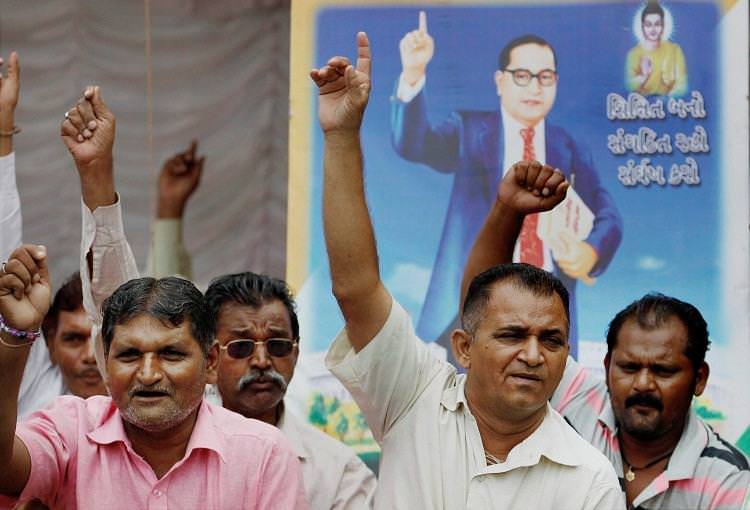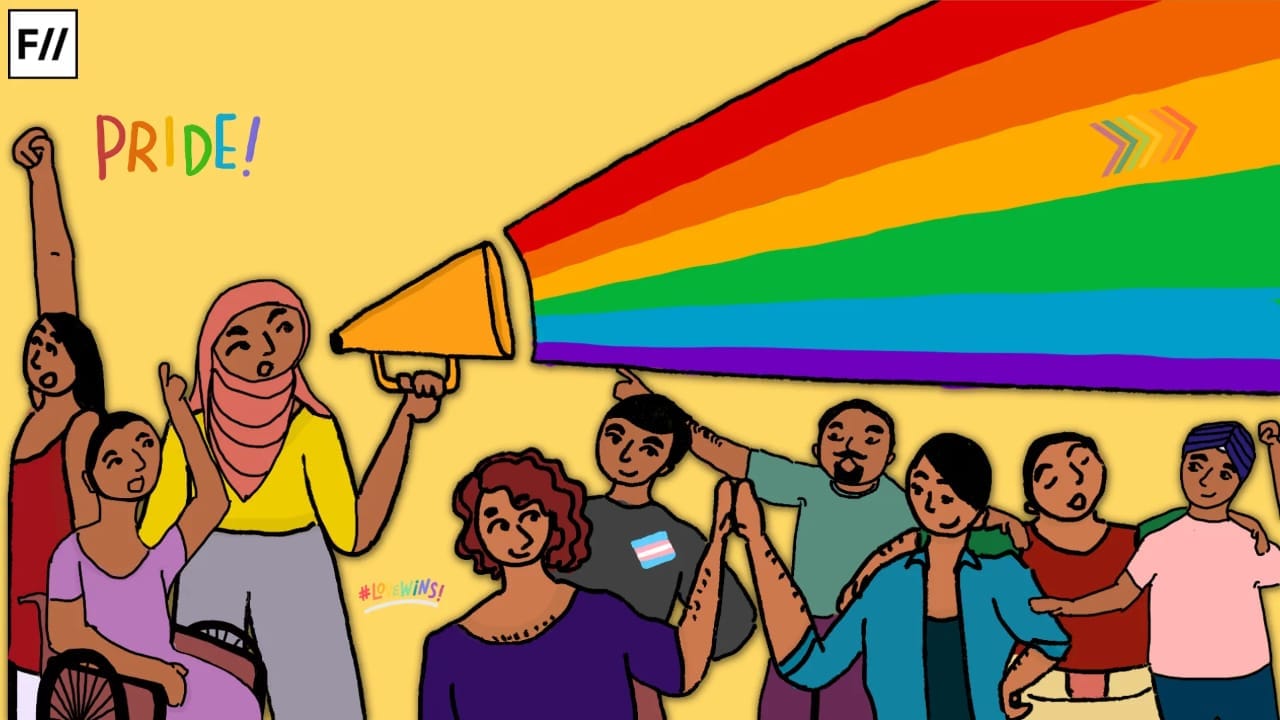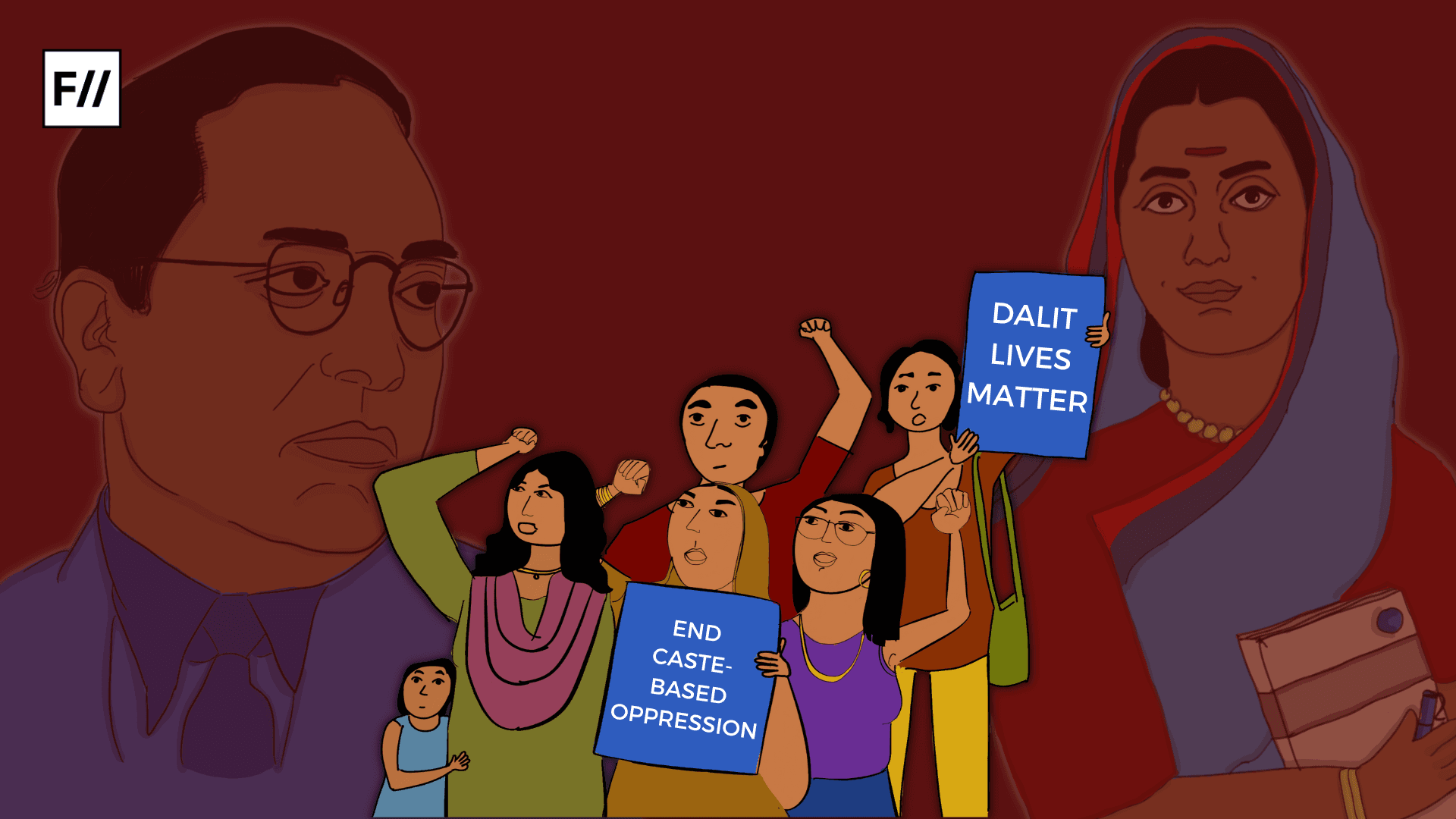A few days ago, I wrote a rebuttal to Ramachandra Guha’s op-ed in Indian Express on Gandhi. My article was appreciated and criticised in equal measure. But the common thing about both the camps was that they assumed I was a Dalit. This was strange because my article completely focuses on Ramachandra Guha and his op-ed. There was not a single line in the article about myself; though there was a hint that I was writing from a non-upper caste (read Bahujan) location.
While it was strange for people to assume I was Dalit, it wasn’t completely surprising. OBC castes have failed to radicalise themselves and join the struggle for annihilation of castes with force. This is in sharp contrast to Dalit castes, who building on the legacy of Jotiba Phule, Shahu Maharaj, B R Ambedkar, Periyar and Kanshiram, have lead a strong anti-caste movement. It is interesting to note that out of the five names I mention, three belong to non-Dalit castes.
Also Read: A Reading Of Jotiba Phule’s Gulamgiri: A Seminal Text On Caste
Jotiba Phule, who opened the doors of education to Shudras, Atishudras and women, and put up a fierce challenge to Brahminism in Maharashtra through his Satyashodhak Samaj, actually belonged to the (now) OBC caste, Mali. But OBC castes have taken no learnings from his radical work. They also have completely ignored the tallest figure of the anti-caste movement — who gave us the slogan ‘Educate, organise, agitate’ — B R Ambedkar.
OBC castes have failed to join the struggle for annihilation of castes with force.
Castes in the OBC fold have largely remained parochial. They have mostly organised themselves by setting up single-caste formations, working for the upliftment of their own respective castes. They pay a lip service to leaders like Jotiba Phule, Shahu Maharaj and B R Ambedkar, but annihilation of castes does not feature on their agenda. Most of them keep themselves busy in organising caste melas and endogamous matchmaking events. They have rarely tried to form multi-caste groups with the radical agenda of annihilating the caste system.
OBC as a category emerged only in the 1980s, after the Second Backward Class Commission was set up in 1979 under the chairpersonship of Bihar’s former chief minister B P Mandal. The Mandal Commission submitted its report on December 31, 1980. The report included peasant and labouring castes and communities from all religions (including Muslim and Christian) that were educationally, economically and socially backward, in the category called Other Backward Classes (OBCs). The report was accepted by the Indian government only in 1990, when V P Singh was the Prime Minister.
The implementation of Mandal Commission gave 27% reservations to the OBCs at all levels of government services. This decision faced a huge backlash from upper castes. The protests that followed made the term OBC enter public imagination. Thus, the origin of OBC as a social and political category is recent, which also explains why mobilisation around this identity has not gained momentum yet.
The comparatively better-off section of Shudra castes always tried to emulate upper castes and get a seat at their table.
There is another reason why Shudra castes have not put up a challenge to Brahminism as fiercely as Dalits. Shudras did not face untouchability, unlike the Dalits. They were also higher in ritual hierarchy to the Dalits and took false, smug pride in feeling superior to them, and also oppressed them for material gains and ideological reasons. They did not identify “twice-born” upper castes as the enemy that has kept them educationally and economically backward, completely ignoring Jotiba Phule’s radical writings. The comparatively better off section of Shudra castes always tried to emulate upper castes and get a seat at their table. The two-three centuries of efforts of Shudra castes to claim a Kshatriya status for themselves, which still continue, albeit with less vigour, are symptomatic of the same.
This is the reason anti-caste movement gets identified with the Dalits, because not just their leaders, intellectuals and activists but the whole community has managed to radicalise itself against Brahminism. There is a lot that OBCs can learn from them. OBCs need to stop their ‘frog in the well’ attitude and build a broader coalition of all OBC castes to fight Brahminism. Annihilation of castes should be their motto not just for their own sake but also because liberty, equality and fraternity are the principles every human being should cherish for themselves and the whole of humanity.
Featured Image: Protests at Chalo Una – by PTI, via The News Minute.





Women too – being victiims of brahminism – should join the Anti-caste movement
Article is going in negativity and lacking historical and holistic understanding of the subject. By putting the title “Why haven’t more OBC castes joined Anti- caste movement” is very big responsibility of articulation but that has not been the case with this article. Can writer tell us which period he has considered for struggle against caste? if writer is using OBC synonymous to shudra caste (which can be seen in the article as well) then from which time period shall we start? Buddha got his follower which were majorly from shudra varna. later on Ambedkar in his book “The untouchable and how they become untouchable?” and other scholars like P.L Narasu and Pandit Ayothidas argues that untouchable were made untouchable as they formerly were Buddhist. Now How one shall tackle this issue? not only this but consider other ascetic cults and bhakti movement in the medieval time like many saints from Maharashtra and across the country. were not they from Shudra castes? There are plenty of names.
Ezava community from kerala is OBC but they had given strong fight against caste in late 19th and early 20th century. shouldn’t one take note of this all?
I would like to share something by which we can understand complexity of the subject. In 2016 on 14th of October at Dikshybhumi I interviewed a 60 year old person from ‘mali’ (OBC) community. he said I am from rural buldhana district and since 40 years i visit Dhikshyabhumi and Chaityabhoomi without missing single year. HE further said that He likes Buddhism, buddhist people are very humanly and they don’t practice discrimination and inhuman practices that why I like this people, their culture and this place.
second person at my friends workplace was also from same community. when I visited there, I had motton in my launch-box. when I opened it and started eating in the companies canteen, that person belongs to mali community said, “ohh are you mahar? why are you eating non-veg? only mahars will do such kind of things. very bad people they are.”
This are the complexities tejus. You cannot see OBC or Dalit in black and whites.
this article is miserably fails in pointing out this complexities. I know you have written very short article and you would want to say more… please write detail on the same issue. looking at the title many may read but they will be misguided if you are not bringing detailing and complexities of the subject. it is my responsibility to correct you so don’t feel bad. would like to read detailed analysis of the same topic from you.
This article contains the truth.